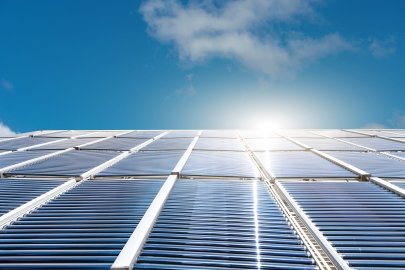Solar Water Heater Heating Your Home With Solar Power
Typically the solar water heating system will have a more expensive installation and cost of purchase than the water heating devices commonly employed. Despite the increased initial expense, a solar hot water heater is able to help you save money in the long run.
When making a decision between the various water heating systems there are two fundamental elements to take into consideration:
The quality of the water locally and the coldness of it will determine the efficacy of your solar geyser's performance
The amount saved will depend on a range of elements, including:
- The quantity of water used by your home
- The performance overall is the main function of water heating systems
- The amount of solar power readily available, based upon your location
Those who set up a solar water heater will be capable of achieving monthly savings of between 50 and 80 percent on their heating costs. Another major benefit of using free solar energy is that you will not have to pay heavy electric bills to electricity suppliers anymore. Instead, you can be self-sustaining. There is no need to worry about power supply issues ever again because you are self sustainable. solar geyser installers
Solar Power is Cheaper Than you Think
The most frequent issue people have to worry about when investing in the solar water heating system is the price. When solar-powered systems first arrived on the scene they were way to costly for the average consumer to buy, until recently.However the technology has advanced and our understanding of the rapid depletion of traditional energy sources. You may have noticed that the price for a solar-powered geyser has dropped significantly over the past few months.
Prices and Potential Eskom Rebates
In general, you can expect an initial cost of R18000 between R18000 and R30000 for the solar system that will be installed and delivered depending on the type of system you're looking to purchase. You are eligible to apply for an Eskom rebate, which typically could amount to around 30% of your cash returned. When determining the rebate amount, Eskom takes the efficiency of the system into account. Utilizing the Eskom rebate program, customers can quickly determine the water heating systems from solar that are good to use for them.In order to be eligible for the rebate, be sure the solar powered system is SABS approvedand is able to sustain the conditions of our South African climate.A common misconception that is shared by South African consumers is that Eskom rebates are difficult to obtain. Eskom rebate system is difficult to access and full of administrative errors. What they don't know is that Eskom approved companies deal directly with Eskom directly and handle all paperwork and ensure that you receive your rebate.Customers who fill out their forms using the assistance of SABS authorized dealers have an 99% success rate for receiving their rebates.
What is the time it will Take To Earn A Profit On Your Investment?
One of the primary motives why so many homeowners are switching from traditional water heaters to solar heaters is because , not only will you save significant dollars each month on power bills however, over time these savings keep adding to the point that the solar water heater pays itself off and then you save money as time goes on. The longer you have the solar water heater the more money you'll save. Depending on your household's amount of water usage, this may take between three to four years.
Solar Water Heater Accessories
In order to reap the benefits of a solar geyser, your home requires some tools to make the solar system to work.
You'll require the following materials to allow the solar geyser working on your behalf:
- A solar pump
- You must use a heat exchange device
- A device that collects solar energy
- A tank can be used to store water
It is the next thing to do, which is determine whether you would prefer either a direct or indirect system. Below are some details regarding indirect systems and direct systems.
Using a direct system
If you decide to use direct systems it is set up on top of the roof of your home. This may result in heating loss between solar panels and pipes. The water flows through the collectors on the roof, therefore you need water of the highest quality. In order to ensure that the system functions properly for your system, ambient air temperatures should not be lower than 4 degrees Celsius. An open/direct solar water heating system isn't suggested for colder climates and areas of South Africa with high instances of water mineral. solar plumbing
Indirect solar heating systems
Indirect systems do not run through the home's water supply. They work by transferring indirect of energy through the solar panel fluid. There is a minimal loss of heat through an indirect system because the collector and solar geyser panels are set close to one another on the roof. If you are located in an area where water quality fluctuates and it does reach colder temperatures, then an indirect system will be more beneficial for you.
Things you need to know regarding water heaters:
- Eskoms rebates can be claimed by the client or the solar water heater supplier.
- Standard solar water heating systems receive around 70 percent of the heated water they use from their solar systems. It is necessary to purchase larger systems to ensure 100% sustainability.
- If you don't want to run out of hot drinking water using one of these systems, you should think about backup.
- Families with around four members require a 200-liter geyser.

Comments
Post a Comment